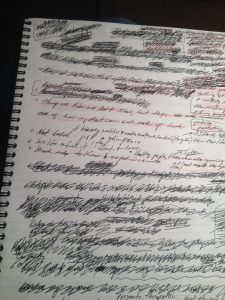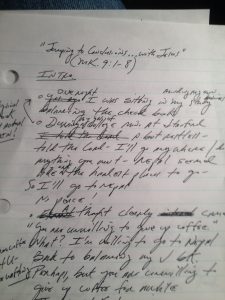STEPPING INTO CONTROVERSY…WITH COURAGE AND CHRIST-LIKE CHARACTER
IS IT POSSIBLE IN OUR DIVISIVE AND TURBULENT TIME?
Taught by Dave Moore
Imagine that you are at your favorite coffee shop. Everything about the place is great, except the tables are a bit too close to one another. This, of course, makes it difficult to avoid eavesdropping. Your reading tends to zone you out from the conversations of others, but not on this day. To your utter amazement you listen in on a conversation between an ardent Trump supporter and one who gladly voted for Hillary Clinton. It is not the various arguments that are being mustered for one candidate over the other that intrigues you. Rather, it is the evident respect each person has for the other even while articulating their significant disagreements.
It is hard to go back to your reading for the day. You become preoccupied with why the kind of exchange you just heard is as rare as it is refreshing…even in your local church.
For seven weeks we will discuss several areas that can hurt or help us as we discuss controversial subjects. A sampling of these include:
*Taking honest inventory of our own failure to be prepared and/or interact with grace
*The need to slow down and pay more careful attention to the definition of words
*Diagnosing how much of an echo chamber we live in
*The need to read and listen to those who make us angry…and to pay close attention to what our “opponents” can teach us
*Why the focus must be on our own challenges rather than being frustrated with those we disagree with
We will also be looking various points raised in How to Think: A Survival Guide for a World at Odds by Alan Jacobs. Copies will be available.





